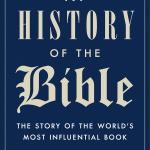Last time I talked about the second century philosopher Peregrinus, whom we know who went through a ruthless satire written by Lucian of Samosata in the 150s. Part of Peregrinus’s bizarre career involved a Christian phase, and the exact wording of that account is quite surprising. I plead ignorance here, but I am not sure if the full implications for early Christian history are as well known as they should be. (Jan N. Bremmer has a fine essay on “Peregrinus’ Christian Career” in Anthony Hilhorst, Emile Puech, and Eibert J. C. Tigchelaar, eds., Flores Florentino: Dead Sea Scrolls and Other Early Jewish Studies in Honour of Florentino García Martínez (Brill 2007), 729-747).
Here again is Lucian’s account of Peregrinus’s Christian career:
It was then that he learned the wondrous lore of the Christians, by associating with their priests and scribes in Palestine. And—how else could it be?—in a trice he made them all look like children, for he was prophet, cult-leader, head of the synagogue, and everything, all by himself. He interpreted and explained some of their books and even composed many, and they revered him as a god, made use of him as a lawgiver, and set him down as a protector, next after that other, to be sure, whom they still worship, the man who was crucified in Palestine because he introduced this new cult into the world.
The specific words used in the original here are interesting. The phrase translated as “wondrous lore” is thaumasten sophian, which could even mean something like “wisdom of wonders.”
I was intrigued by the description of Peregrinus as a “cult-leader,” which is a very modern phrase. The original Greek is prophetes kai thiasarches kai synagogeus, and that really unusual word thiasarch demands discussion. It means the head of a thiasos, “a group of singers and dancers assembled to celebrate the festival of one of the gods.” It might imply an ecstatic or Dionysiac context, so that is a multiply interesting borrowing.The word translated as “cult” in the last line is teleten, which was commonly used in the context of the pagan Mysteries, for example at Eleusis, and otherwise appears as festival or ceremony – usually of a secretive and nocturnal kind. As in the Dionysiac sense, it implies something sneaky and suspicious, with the hint of naughty deeds being done literally in the dark. This is pretty concentrated Mystery-speak.
So “cult” in the popular sense is actually pretty accurate, in terms of reflecting what mainstream Greek thinkers thought about the emerging religion. Yet other words clearly declare the Jewish context – prophet, synagogue. So in his view, Christianity is a kind of Dionysiac mystery cult sprung from Judaism.
No less suggestive is the fact that even in the 150s, Lucian still assumed that Christians belonged to a synagogue. And do note how centered Christian life is on “their books” – whether in this context that means the Old or New Testament.
I would love to know more about the Christian “priests and scribes” that Lucian suggests can be found in Palestine – hiereusein kai grammateusin. I really doubt if he means it literally, in the context of the Christian church at the time. But does that reflect his ignorance, or is he making a really cunning point? That phrase sounds like authentic New Testament language, “priests and scribes,” as regularly denounced in various ways. The form grammateusin occurs twice in the gospels for “scribes,” at Mark 10.33 and Matthew 20.18. The gospels use hiereusein for priests at Matt. 12.4 and Luke 17.14. Jewish priests and scribes were certainly not functioning in Palestine in the mid-second century, as the Temple had fallen in 70.
Can we even read Lucian’s words as a wry joke? Jesus is always denouncing priests and scribes, but now the Christians themselves have them, and as it happens, they are none too smart, if they fall for Peregrinus.
Is it vaguely possible that Lucian has heard these loaded words from the gospels themselves, or from some Christian text? If so, that really would be quite a momentous finding for what it implies about pagan knowledge of the New Testament, and as early as the 150s. To put that in context, we know that not long after that date, in the mid-170s, the pagan Celsus was drawing on plenty of Christian written sources in order to construct his polemical attack on the faith. His work is lost, but we know most of it through Origen’s Contra Celsum.
So what exactly had Lucian been reading? What did he know and when did he know it?
See also Jan N. Bremmer, “Lucian on Peregrinus and Alexander of Abonuteichos: A sceptical view of two religious entrepreneurs,” in Richard L. Gordon, Georgia Petridou, Jörg Rüpke, eds., Beyond Priesthood: Religious Entrepreneurs and Innovators in the Roman Empire (Walter de Gruyter 2017).













